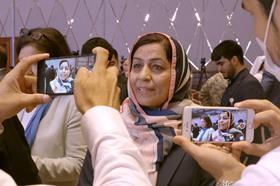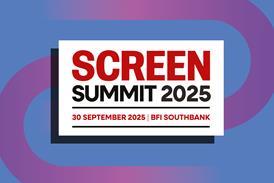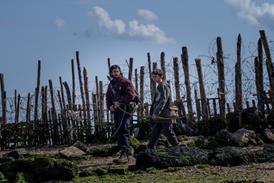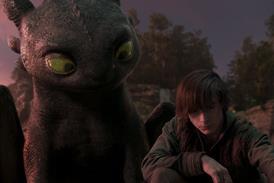
Hot Docs is billed as North America’s largest documentary festival, conference and market and this year is offering up 168 films for its 31st edition running April 25-May 5 in Toronto.
It is opening with the international premiere of Luther: Never Too Much about R&B singer-songwriter and producer Luther Vandross.
Among the festival’s 51 world premieres this year are special presentations of Red Fever from Cree filmmaker Neil Diamond and Catherine Bainbridge, and The Ride Ahead from Samuel and Dan Habib.
The international competition includes the world premiere of Farming The Revolution from India and the international premiere of Ukrainian Sundance prize-winner Porcelain War.
This year’s Made In section highlights Spain, with titles including the world premiere of The Click Trap.
The festival’s industry programme, meanwhile, takes in the Hot Docs Forum, with 19 feature-length projects from 18 countries being pitched to international decision-makers for co-production and funding opportunities. The Deal Maker section will see another 40 projects pitched in one-on-one meetings.
New programme section Hot Takes will feature a session on the documentary landscape with Oli Harbottle from UK documentary specialist Dogwoof.
However the 2024 edition of Hot Docs is unfolding against a backdrop of turmoil within the festival organisation. Hot Docs president Marie Nelson has recently called on audiences and government funders for more financial support, saying that the institution faces “a significant operational deficit that threatens our long-term sustainability”.
And a month before the start of the 31st edition, 10 festival programmers abruptly resigned, claiming they had been working in a “chaotic, unprofessional and discriminatory environment”. It was also revealed that recently appointed artistic director Hussain Currimbhoy had left the festival, whose programming department is now being led by longtime staff member and director of festival programming Heather Haynes.
Haynes talks to Screen about potential breakout titles, the industry programme and how the festival team is navigating around the organisational turmoil.
What does the international film industry need to know about Hot Docs this year?
We have incredible audiences here. We are a festival city in Toronto and our audiences are very deeply engaged and knowledgeable. And we have a diversity of films that appeal to a wide range of audiences. Filmmakers who have attended the festival really enjoy the Q&As and find that we have some of the best audiences in the world because they are so engaged. And we take very good care of the filmmakers while they are here.
Which titles in this year’s selections have the potential to break out commercially?
Brett Story and Stephen Maing’s Union, about Amazon workers trying to unionise, which was at Sundance and won the US Documentary Special Jury Award for Art of Change. Yintah, directed by Jennifer Wickham, Brenda Michell and Michael Toledano, has a lot of potential. It’s about the Wet’suwet’en people resisting the construction of pipelines across their territory.

The Sharp Edge Of Peace by Roya Sadat is about four extraordinary women navigating the Taliban government in Afghanistan. It’s part of our Deal Maker programme. And [there is] Xixi, which is part of our competition this year and part of Deal Maker. It’s by Fan Wu and it’s getting a lot of buzz.
What are the highlights of this year’s industry conference and market programme?
We’ve got [filmmaker, author and organiser] Astra Taylor in conversation with Brett Story and they’re going to be discussing their artistic practices and sources of inspiration.
We also have Powering Stories and Recognition, focusing on [Hindi-language Canadian documentary] To Kill A Tiger and how they approached their Oscar campaign, with director Nisha Pahuja and executive producer Geeta Sondhi.
And we’re having a very timely symposium: Doc Festivals and Markets of the Future. It’s going to be small working groups with breakout sessions to share what we see in the future for festivals and markets. I think it’s needed right now.
How will the departure of the 10 programmers impact the running of this year’s festival?
HH: We’ve got a cinema team of programmers and they’re going to be doing a lot of Q&As, [as well as] people from the Docs For Schools programme that is a part of Hot Docs. And we’ve had a lot of people from the community of filmmakers and other festivals who have stepped in and they’re going to be supporting us throughout the festival.
Will the festival’s need for more financial support be reflected in this year’s event?
No. We’re solid moving forward and we’re very excited to support the filmmakers and celebrate the films. I don’t think people are going to feel any kind of difference from what we’ve done in the past.
How might the need for support affect future editions of the festival?
We’re actively having conversations with different sectors and in government looking at diversifying funds. Going into our 31st year we’ve really seen the love for and importance of this festival within the community and on an international scale. I believe that we will find a path forward.
























No comments yet